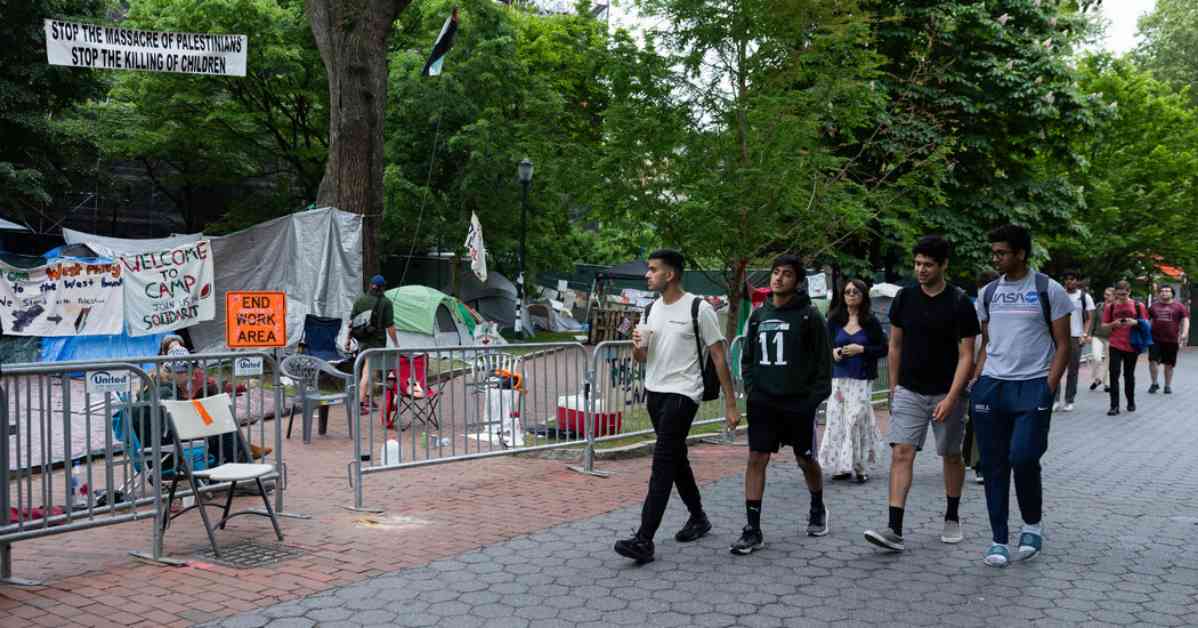Penn University Implements New Policy Restricting Protest Activities on Campus
The University of Pennsylvania recently announced new rules aimed at significantly restricting protests on campus, including explicitly banning encampments for the first time. This decision comes in the wake of a nationwide surge in student activism surrounding Israel’s actions in Gaza. The university’s move to limit demonstrations comes just weeks after police dismantled a pro-Palestinian encampment on campus, resulting in the arrest of 33 individuals.
Scores of similar encampments have emerged at universities nationwide, protesting Israel’s military campaign in Gaza. These protests have led to over 3,000 arrests since mid-April and have heightened tensions between students and university administrations. The University of Pennsylvania’s new rules not only prohibit encampments but also aim to regulate various aspects of demonstrations on campus.
New Regulations Aimed at Ensuring Safety and Protecting Core University Functions
The temporary rules issued by Penn explicitly state that encampments and overnight demonstrations are strictly forbidden on university property, regardless of whether they are conducted indoors or outdoors. Any unauthorized overnight activities will be considered trespassing and will be addressed accordingly. Additionally, the regulations prohibit protests that obstruct speakers from expressing their views or prevent other members of the university community from hearing or seeing the speaker.
Moreover, students are now barred from projecting slogans onto buildings or writing slogans on them using semi-permanent or permanent materials such as chalk or markers. The administration at Penn stated that these new rules are a response to calls for more clarity regarding acceptable forms of expression on campus. The university aims to balance the importance of free speech with the need to maintain its core functions of teaching, research, service, and patient care without disruption.
Controversy Surrounding the New Policy and Potential Ramifications
The implementation of these new regulations has sparked controversy among students, faculty, and activists who argue that the restrictions infringe upon their right to protest and express dissent. Critics of the policy believe that it undermines the tradition of student activism and limits the ability of marginalized communities to voice their concerns on campus.
On the other hand, supporters of the new rules argue that they are necessary to maintain a safe and conducive learning environment for all members of the university community. They assert that the regulations are essential for preventing disruptions to academic activities and ensuring that the university can carry out its core missions effectively.
It remains to be seen how the new policy will be enforced and what repercussions students may face if they violate the regulations. The administration has indicated that disciplinary action will be taken against those who do not comply with the rules, but the specific consequences have not been detailed.
In conclusion, the University of Pennsylvania’s decision to implement new rules restricting protest activities on campus has stirred debate and raised important questions about the balance between free speech and maintaining order on campus. As the university moves forward with these regulations, it will be crucial to monitor their impact on student activism and the overall campus climate.
